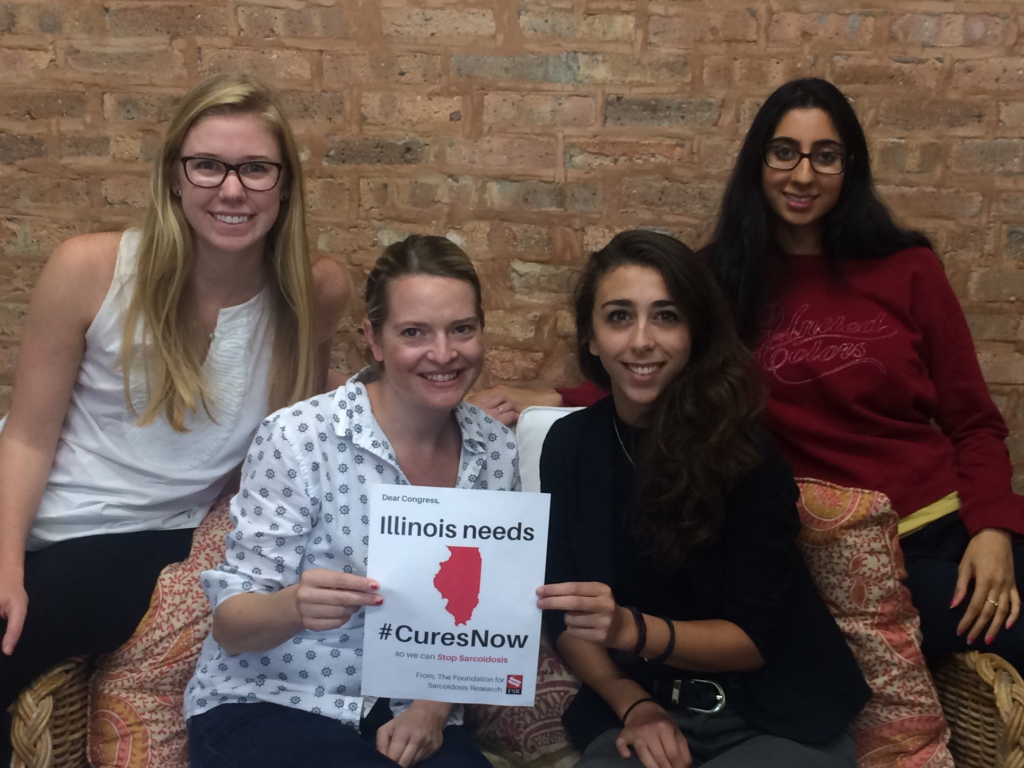
FSR wants #CuresNow!
Time is running out for an important piece of legislation that has recently stalled in the Senate. The 21st Century Cures Act was passed by the House in July 2015, but is now at risk of expiring before the Senate can approve it.
A large portion of the act focuses on one of FSR’s main goals: accelerating research for rare diseases by repurposing drugs that have already been FDA-approved. Many of these drugs have the potential to benefit patients with diseases not yet listed on the label. Since these drugs have already been proven safe for human use, repurposing them means eliminating nearly all of the time and costs that go into the early stage clinical trials of new experimental drugs. Instead, researchers can jump straight to testing the drug’s efficiency for the new intended indication, and get the drug to patients faster. If the Senate were to pass the 21st Century Cures Act, it would have huge effects on the repurposing of drugs as well as processes like fast-tracking the approval of orphan drugs (drugs for diseases that affect less than 200,000 people.)
The 21st Century Cures Act has stalled in the Senate at a pivotal time; the senators will go into recess in a few weeks until after the presidential election in November. The bill has stalled largely because Democrats and Republicans cannot agree on how to fund the bill, but opposition has also come from those who are concerned about the dangers of loosening safety regulations for drugs and devices. However, the policies in this act that “loosen” the FDA standards are doing so in very controlled situations. For example, the part of the bill that proposes to eliminate lengthy clinical trials for drugs that have already been approved for other illnesses; it even allows previous off-label clinical success of the drug—when a doctor prescribes a drug to a patient with a disease not listed on the label—to replace some of the previously necessary clinical trials that prove the drug’s efficacy for the newly indicated disease. This way, drugs that doctors have already found to work for treating a patient’s illness and managing their symptoms will be able to be approved for that use much more quickly than before. While cutting out these trials may seem unsafe, the patients who will actually be prescribed these drugs are often running out of time and options, making this their best chance for controlling or treating their disease.
Currently, the EveryLife Foundation for Rare Diseases has started a campaign, #CuresNow, to urge the Senate to pass the bill before they go into recess. They’re asking for people whose lives could improve due to the 21st Century Cures Act to send in photos asking their senators for #CuresNow. FSR encourages all of our followers to learn more about the act and let Congress know if you support it. You can see photos that people with rare diseases have sent in for the #CuresNow campaign and submit your own photo here. If you don’t feel like snapping a quick selfie, just reach out to your senator to help get this bill passed! Click here to find your Senator’s contact info.
Part of the 21st Century Cures Act that may benefit sarcoidosis and other rare disease patients:
(Taken from a summary of the 21st Century Cures Act on www.congress.gov)
- Orphan Product Extensions Now; Incentives for Certain Products for Limited Populations
- The marketing exclusivity period of a drug approved for a new indication that is a rare disease or condition is extended by six months.
- The priority review voucher program for rare pediatric diseases is extended through 2018 and revised to apply only to serious diseases.
- The sponsor of a drug for a serious condition may request that the FDA agree to an accelerated approval development plan. The plan must include the design of the drug study.
- The FDA must define “precision” drugs and the evidence needed to support their use in a subset of patients. To expedite clinical development of precision drugs for the treatment of serious or rare conditions, the FDA may rely upon data previously submitted for a different approved drug or indication.
- To support approval of a drug for a new indication, the FDA must evaluate the use of evidence from clinical experience (in place of evidence from clinical trials) and establish a streamlined data review program.
